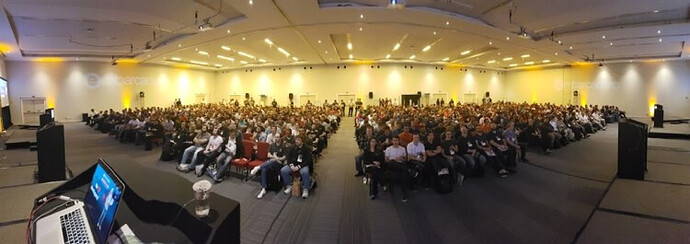I am a bit late to the party here  here are my 2ct:
here are my 2ct:
We consider Xojo also as technical debt internally. The reasons OP named might not count if you have one of them, but them combined shows some weaknesses the tool has.
A small team must mean not that they got no ability to execute. Xojo staff impressed us serveral times. But small teams have a bigger chance to loose important positions than large teams. We also experienced this here.
To be a nieche product and to have only a small usergroup must not be bad either, but Xojos ecosysten is far from beeing able to compete with others. I mean, there are tjird party supplies, and without them Xojo wouldn’t be half as versatile as it could be. But there’s no open source community, no real competition. Even if Xojo stays alive, if a plugin developer fades a way, the whole ecosystem has a problem.
The pricing is a thing as well.
And the closed IDE, which is nice if you’re a citizen developer. But many professionals want to have more. Starting with a git integration, ending by not beeing forced to click that mich around. I mean, we even wrote our own VS-Code Plugin to develop things faster than in the IDE itself.
What us brought to the point, that we have to get rid of most of the Xojo code we wrote in the past 6 years is, that you never know what happens next. Xojo is a completely blackbox. The tool is, the company as well. The priorities are changing every three months, you‘ll never know when your bug is beeing fixed or when a long introduced feature is eventually ready. I think this is what OP means, that Xojo is not Open Source. You are completely in the hands of them and you have no way to get further information or to influence. Look at the end of Web 1 from one day to another. I never experienced something like that elsewhere.
Last, and that is the most important thing. You don’t find new employees. No one with experience knows Xojo. And no one who cares about it‘s career accepts a job where he/she has to work in a language which they’ll never use again in their live if they’re leaving someday. Even if you teach new employees Xojo, it takes a year until they are at the level where you want to have them.
In this year they used other tools in their private life, liked them more and got frustrated when they are forced to use Xojo at work. This is our experience, it is no blaming, it is just how it is.
That is why I totally agree, that Xojo is technical debt.
 here are my 2ct:
here are my 2ct: